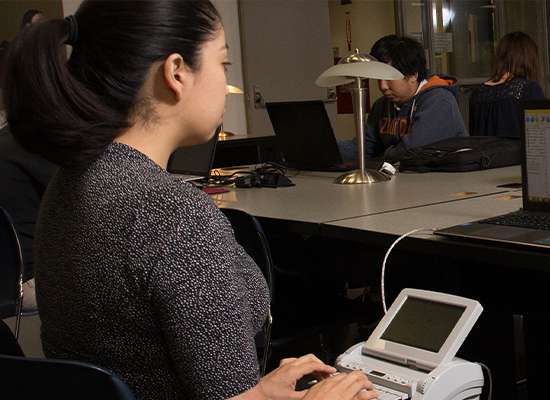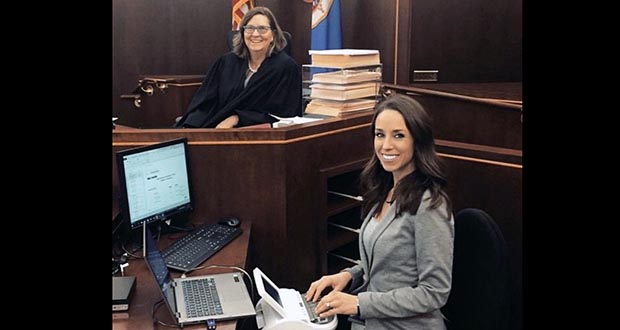Tips for selecting durham court reporting professionals
Wiki Article
The Significance of Court Reporting in Ensuring Accurate Legal Process
Court reporting is a vital component of the legal system. It provides a impartial and exact record of court activities. This documentation is essential for appeals and lawful research, guaranteeing that every talked word is caught precisely. The honesty of legal process relies greatly on these transcripts. However, the function of innovation and evolving practices questions regarding the future of court reporting and its effect on justice. What adjustments lie in advance?The Function of Court Reporters in the Legal System
Court reporters play a necessary role in the legal system by providing objective and accurate records of proceedings. Their work guarantees that court room discussions, witness testimonies, and lawful arguments are consistently recorded, functioning as a main record for future reference. This paperwork is important for appeals, lawful research study, and preserving the integrity of judicial processes. Court reporters are educated specialists knowledgeable in stenography and different taping technologies, enabling them to catch spoken words with precision. They have to have a detailed understanding of lawful terminology and court room protocols, assuring that their transcripts fulfill the requirements called for by the judicial system. Furthermore, they may supply real-time transcription services, enabling judges and attorneys to accessibility information immediately during proceedings. By meeting these responsibilities, stenotype reporter facilitate transparency, responsibility, and the reasonable management of justice, thereby reinforcing the fundamental concepts of the lawful system.Making Certain Precision in Transcription
Accuracy in transcription is critical for preserving the stability of legal proceedings. Court press reporters diligently record every word spoken throughout trials, depositions, and hearings, guaranteeing that the authorities record mirrors real discussion and exchanges that take place. This precision is essential, as even small errors can lead to significant misconceptions or false impressions of the law.To accomplish this degree of accuracy, court press reporters use different strategies, consisting of active listening and the use of specialized shorthand methods. Constant training and familiarity with legal terms also boost their capability to produce dependable transcripts.
Furthermore, the confirmation process is vital; reporters typically assess their transcripts for possible discrepancies prior to final entry. This persistance not just upholds the high quality of lawful documentation but additionally sustains the judicial process, allowing attorneys and courts to reference exact documents when making choices. Inevitably, exact transcription cultivates rely on the legal system and guarantees that justice is offered.
The Effect of Innovation on Court Reporting
As modern technology continues to evolve, its influence on court reporting has actually ended up being progressively substantial. Digital tape-recording systems and speech acknowledgment software application have changed typical practices, supplying brand-new tools for recording spoken dialogue. These developments improve performance and accessibility, making it possible for faster transcription and real-time reporting. Furthermore, cloud-based systems assist in seamless sharing of transcripts, improving collaboration amongst lawful professionals.
Ultimately, while technology boosts the rate and access of court reporting, it underscores the need for human oversight to keep the top quality and precision essential for lawful procedures. As the field remains to adapt, the assimilation of technology will play an essential function in shaping the future of court reporting.

The Value of Privacy and Honesty
Confidentiality and stability are essential concepts that underpin the technique of court reporting in legal proceedings (durham court reporting). Stenotype reporter are turned over with sensitive information, requiring them to keep discernment and secure the personal privacy of all events included. This privacy promotes a relying on atmosphere where litigants and witnesses can talk openly, ensuring that the lawful procedure is fair and simplyHonesty is similarly vital; court reporters must supply accurate and honest records, offering as the authorities record of the procedures. Any gap in honesty can bring about misinterpretations, possibly affecting case outcomes and undermining the judicial system.
Future Trends in Court Reporting
The landscape of court reporting is developing in reaction to technological innovations and the transforming needs of the lawful occupation. Arising patterns consist of the integration of synthetic intelligence and real-time transcription solutions, which enhance performance and accuracy. Court press reporters are significantly utilizing electronic devices, such as cloud-based systems, enabling smooth partnership amongst lawful teams and simpler access to transcripts.In addition, the rise of remote court process has actually prompted the development of specialized training for press reporters in online environments. This change not just adjusts to the demands of a globalized legal landscape yet also addresses difficulties posed by geographical barriers.
The focus on accessibility is driving developments in transcription layouts, guaranteeing that lawful documents provide to diverse audiences. Overall, the future of court reporting is characterized by a blend of standard abilities and contemporary innovation, positioning reporters as crucial gamers in the lawful process.
Frequently Asked Concerns
What Qualifications Are Needed to End Up Being a Stenotype Reporter?
To come to be a stenotype reporter, individuals generally need a senior high school diploma, specialized training in court reporting, efficiency in shorthand or voice writing, and accreditation or licensing, depending upon the jurisdiction and particular job needs. - durham court Web Site reportingHow Do Court Reporters Maintain Their Abilities Gradually?
Court reporters keep their skills with time with continuous education, practice, and involvement with expert organizations. They typically attend workshops, use advanced technology, and join accreditation programs to enhance their proficiency and adapt to evolving standards.What Challenges Do Court Reporters Face in Their Occupation?
Court press reporters encounter many challenges, consisting of managing high-pressure environments, adapting to varied accents and languages, have a peek at this site keeping technological proficiency, ensuring precision under tight due dates, and dealing with mentally billed statements that might impact focus and performance.
Are Court Reporters Associated With Various Other Lawful Settings Besides Court Rooms?
Court press reporters are without a doubt associated with different legal setups beyond court rooms, consisting of depositions, settlement hearings, and administrative process. Their experience warranties accurate transcripts in these environments, adding to the clarity and dependability of lawful documents.How Do Court Reporters Manage Stressful Situations During Proceedings?

Court press reporters manage demanding circumstances by maintaining focus, employing effective time management abilities, and utilizing their training to continue to be tranquil. They usually practice deep breathing and use methods to lessen disturbances, making certain accurate documents under pressure.
Court reporting is a crucial element of the legal system. Court reporters play an essential role in the lawful system by offering exact and objective transcripts of procedures. Ultimately, while innovation enhances the speed and ease of access of court reporting, it check out here emphasizes the requirement for human oversight to preserve the top quality and accuracy crucial for legal process. Privacy and stability are fundamental concepts that underpin the method of court reporting in lawful proceedings. Court press reporters are undoubtedly included in different legal setups beyond courtrooms, including depositions, settlement hearings, and management process.
Report this wiki page